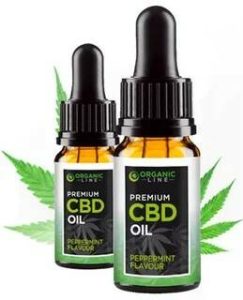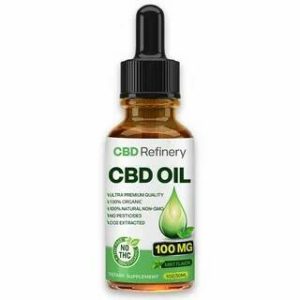
Organic CBD oil refers to CBD oil that is derived from organically grown hemp plants and is produced using organic farming methods. Here are some key aspects of organic cbd oil:
Organic Hemp:
Here are some key aspects of organic CBD oil related to organic hemp:
- Organic Hemp Cultivation: Organic CBD oil is derived from hemp plants that are cultivated using organic farming practices. This means that the hemp is grown without the use of synthetic fertilizers, pesticides, herbicides, or genetically modified organisms (GMOs). Instead, organic farmers rely on natural and sustainable methods to promote plant health and soil fertility.
- Soil Health: Organic hemp cultivation emphasizes the importance of maintaining soil health. Organic farmers use techniques such as crop rotation, cover cropping, and composting to enhance soil fertility, retain moisture, and promote biodiversity. Healthy soil is essential for the growth of robust hemp plants and contributes to the overall quality of the CBD oil.
- No Chemical Residues: Organic hemp is grown without the use of synthetic chemicals, which means that organic CBD oil is free from chemical residues that can be present in non-organic CBD products. This includes residues from pesticides, herbicides, and synthetic fertilizers. Organic farming practices aim to minimize environmental impact and promote consumer safety by avoiding the use of these substances.
- Non-GMO: Organic hemp is non-genetically modified. Organic CBD oil is derived from hemp plants that have not been genetically altered or manipulated in any way. This ensures that the CBD oil is derived from natural, non-engineered hemp varieties.
- Certification: Organic CBD oil often carries certifications from reputable third-party organizations that verify compliance with organic standards. These certifications provide consumers with assurance that the CBD oil meets the specific requirements and regulations for organic farming and production.
By choosing organic CBD oil derived from organic hemp, consumers can support sustainable and environmentally friendly practices while potentially avoiding exposure to harmful chemicals. Organic farming methods prioritize the health of the soil, plants, and ecosystem, which can contribute to a higher quality CBD oil.
Third-Party Certification:
Third-party certification is an important aspect of organic CBD oil. Here are some key points related to third-party certification and its significance for organic CBD oil:
- Independent Verification: Third-party certification involves an independent organization conducting an evaluation and verification of the organic status of the CBD oil. This certification process ensures that the organic claims made by the CBD oil manufacturer are valid and reliable. It provides an unbiased assessment of whether the product meets the specific organic standards and requirements.
- Organic Standards Compliance: The third-party certification verifies that the organic CBD oil adheres to the established organic standards. These standards typically include guidelines for organic farming practices, such as the non-use of synthetic chemicals, GMOs, and specific requirements for soil health and biodiversity. The certification ensures that the CBD oil has been produced in accordance with these standards.
- Transparency and Trust: Third-party certification adds a layer of transparency and trust to the organic CBD oil. By obtaining a certification from a recognized and reputable certifying body, the CBD oil manufacturer demonstrates their commitment to transparency and quality. Consumers can have confidence that the product has undergone an independent assessment and meets the organic criteria.
- Consumer Assurance: Third-party certification provides assurance to consumers that the organic CBD oil has been verified by an external organization. It helps consumers make informed choices and differentiate between products claiming to be organic without any independent verification. The certification label or seal on the product packaging serves as a visible indication of the organic status.
- Quality and Integrity: Third-party certification is an indicator of the quality and integrity of the organic CBD oil. It verifies that the product is free from synthetic chemicals and has been produced using sustainable and environmentally friendly practices. This assurance of quality and integrity can enhance the overall credibility and reliability of the CBD oil.
When looking for organic CBD oil, check for products that carry a third-party certification label or seal on the packaging. Some common organic certifications include USDA Organic, Ecocert, Certified Organic, and others specific to different regions or countries. Verify the credibility of the certifying body and ensure that the certification is recent and valid.

Clean Extraction Methods:
Clean extraction methods are key aspects of organic CBD oil. Here’s why they are important:
- Avoidance of Chemical Solvents: Clean extraction methods in organic CBD oil production avoid the use of chemical solvents such as butane, propane, or ethanol. Instead, they rely on safer and more natural extraction processes that preserve the integrity of the CBD and minimize the risk of chemical residues in the final product. Examples of clean extraction methods include CO2 extraction and ethanol extraction using food-grade ethanol.
- Preservation of Phytochemical Profile: Clean extraction methods prioritize preserving the full phytochemical profile of the hemp plant, including cannabinoids, terpenes, flavonoids, and other beneficial compounds. By using gentle extraction techniques, organic CBD oil retains a broader spectrum of natural compounds, potentially enhancing the synergistic effects known as the entourage effect.
- Non-Destructive to Cannabinoids: Clean extraction methods ensure that the cannabinoids in the hemp plant, particularly CBD, remain intact and undamaged during the extraction process. This helps maintain the potency and effectiveness of the CBD oil. When extraction methods involve excessive heat or harsh solvents, there is a risk of degrading or destroying the cannabinoids, leading to a less potent product.
- Residue-Free: Clean extraction methods minimize the presence of unwanted residues in the final CBD oil. This includes residues from solvents or other extraction agents. By using natural extraction processes, organic CBD oil reduces the likelihood of chemical residues that can compromise its quality and safety.
- Sustainable and Environmentally Friendly: Clean extraction methods align with organic principles by prioritizing sustainability and environmental friendliness. They avoid the use of harsh chemicals that can have negative impacts on the environment. Additionally, some clean extraction methods, like CO2 extraction, use recyclable and eco-friendly materials, further reducing the ecological footprint of the extraction process.
When looking for organic CBD oil, inquire about the extraction methods used by the manufacturer. They should be transparent about their extraction processes and highlight the use of clean and natural methods. Additionally, reputable organic CBD oil brands often provide information about their extraction methods on their website or product packaging.
No Chemical Residues:
The absence of chemical residues is a crucial aspect of organic CBD oil. Here are some key points related to the absence of chemical residues in organic CBD oil:
- Organic Farming Practices: Organic CBD oil is derived from hemp plants that are cultivated using organic farming practices. These practices prohibit the use of synthetic pesticides, herbicides, fungicides, and other chemical substances. By avoiding the use of such chemicals, organic farming minimizes the risk of chemical residues contaminating the hemp plants.
- Quality Control and Testing: Reputable manufacturers of organic CBD oil implement stringent quality control measures to ensure the absence of chemical residues. This includes testing the hemp plants, extracts, and final CBD oil for the presence of contaminants. Third-party lab testing is often conducted to verify the absence of harmful chemicals and to ensure compliance with organic standards.
- Safety and Consumer Health: Organic CBD oil prioritizes consumer safety by avoiding exposure to potentially harmful chemical residues. Chemical residues from synthetic pesticides and herbicides can have adverse effects on human health and may interfere with the intended therapeutic benefits of CBD. By choosing organic CBD oil, consumers can minimize their exposure to these potentially harmful substances.
- Environmental Impact: Organic CBD oil contributes to a more sustainable and environmentally friendly approach to hemp cultivation. By avoiding the use of synthetic chemicals, organic farming practices help protect soil health, water quality, and biodiversity. This not only benefits the environment but also ensures a healthier and more natural product.
- Organic Certification: Organic CBD oil often carries certifications from reputable third-party organizations, such as USDA Organic or equivalent certifications in different regions. These certifications verify that the product has been produced in compliance with organic standards, including the absence of chemical residues.
When seeking organic CBD oil, look for products that have undergone third-party testing and display relevant organic certifications. These certifications indicate that the CBD oil has been verified to be free from chemical residues and meets the specific requirements for organic production.
Quality and Safety:
Quality and safety are fundamental aspects of organic CBD oil. Here are key points related to quality and safety in organic CBD oil:
- Organic Farming Practices: Organic CBD oil is derived from hemp plants cultivated using organic farming practices. These practices prioritize the use of natural fertilizers, sustainable pest management, and soil health improvement. Organic farming helps ensure the quality and safety of the hemp plants, as it avoids the use of synthetic chemicals and promotes the overall health of the plants and the ecosystem.
- Third-Party Testing: Reputable manufacturers of organic CBD oil conduct third-party testing to verify the quality and safety of their products. This testing is performed by independent laboratories and analyzes the CBD oil for cannabinoid content, potential contaminants, and other quality parameters. Third-party testing provides objective and unbiased assurance of the CBD oil’s quality and safety.
- Purity and Potency: Organic CBD oil undergoes rigorous quality control measures to ensure its purity and potency. This includes testing for the presence of pesticides, heavy metals, microbial contaminants, and residual solvents. By adhering to organic standards and conducting thorough testing, organic CBD oil manufacturers strive to provide a high-quality product that meets safety requirements.
- Transparent Labeling: Organic CBD oil manufacturers prioritize transparency by providing clear and accurate labeling. This includes information about the CBD concentration, the extraction method used, and any additional ingredients. Transparent labeling allows consumers to make informed choices and understand the quality and safety aspects of the product they are purchasing.
- Good Manufacturing Practices (GMP): Organic CBD oil manufacturers often follow GMP guidelines to ensure the consistent production of safe and high-quality products. GMP involves strict quality control measures throughout the manufacturing process, including raw material sourcing, extraction, formulation, packaging, and storage. Adhering to GMP helps ensure that organic CBD oil is produced in a controlled and sanitary environment.
When looking for organic CBD oil, consider products that have undergone third-party testing and display relevant certifications or seals that validate their organic status. Additionally, read product reviews, check the manufacturer’s reputation, and seek transparency in the sourcing and production practices.